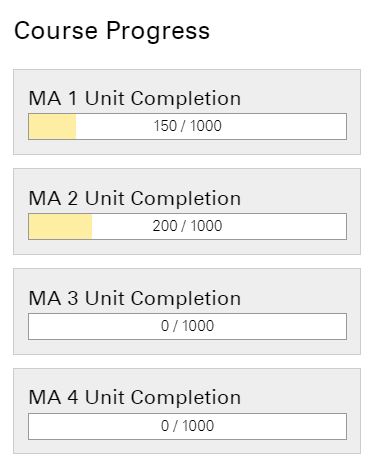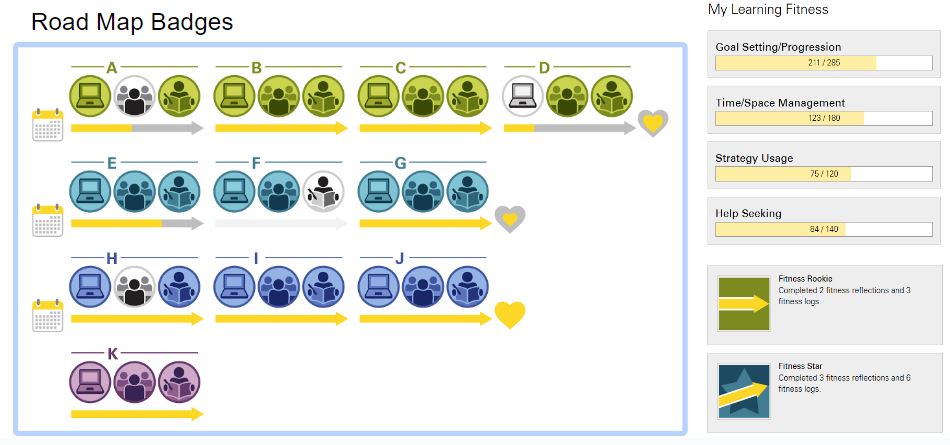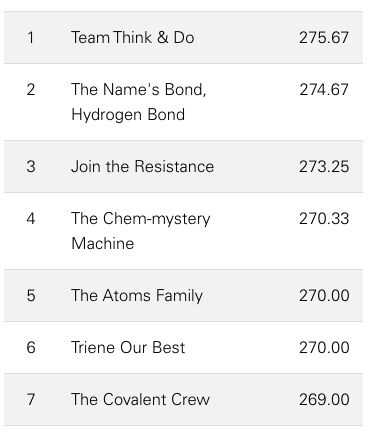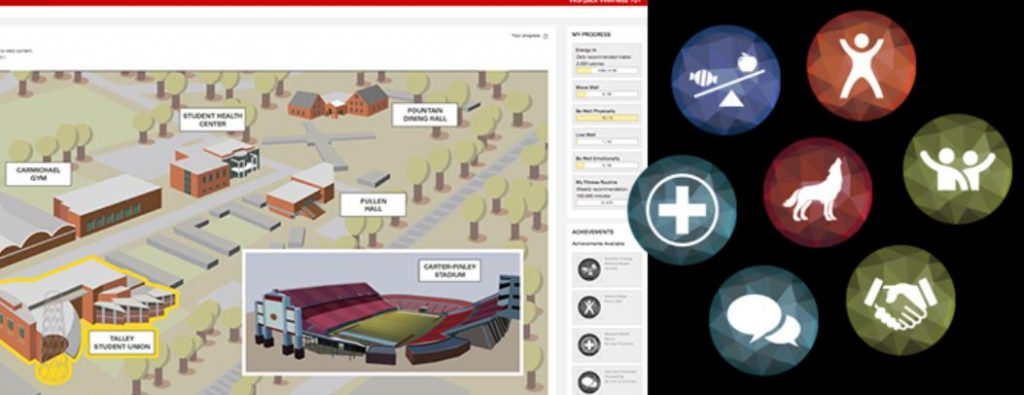Gamify Your Moodle Course
View Our More Up-to-date Resource
The information here has moved over to Why Gamify Your Moodle Course? Please change your bookmarks and reference that page from now on.
Below this line –> no longer updated
Overview
Need a way to enhance engagement in your course? How about a fun way to help students know how to progress through the course and ensure they are reading and completing all activities? Gamification can be a great way to strengthen self-regulation and engagement (Shen & Willis, 2019). The NC State Moodle Gamification Module was created to extend Moodle’s existing functionality to provide instructors the ability to gamify their course using popular gamification elements. The module was constructed with the objective and reward model, where objectives are defined based on Moodle activities, events, and points.
How to Get Started
Step 1: Consider taking our self-paced Gamification Course in Moodle and/or viewing the Recorded Gamification Workshop.
Step 2: Read the Gamification Plugin User Guide to learn key terminology and methods for using the module.
Step 3: To think through key learning objectives and outcomes, utilize this Gamification Planning Challenge Google Sheet.
Step 4: To add gamification to your Moodle course, email learntech@ncsu.edu to request the plugin for your course.
Best Practices
- Start simple. Begin by using the gamification objective type “Activity Completion” to award students points and achievements for completing assigned activities. You can always make the game more complex later by using more advanced objective types such as Moodle Event, Meta, and Points.

- Design badges based on course learning objectives. Open Badge Designer (desktop only) is a useful site for simple badge design. This is a fun way to think about what you really want students to gain from your course.

- Use gamification to enhance self-regulation and engagement rather than as a graded part of the course. Gamification can provide visual feedback that engages students in planning, monitoring, and reflecting on their semester-long learning. Moodle now has a roadmap plug-in that provides gamification features for this purpose, with a more simplified setup process than the gamification module.

- The optional Leaderboard can be configured to show a certain number of top performers in the gamified part of the course. It can also be set to show the ranks of team scores based on the selected grouping setup in Moodle. The Leaderboard is generally not recommended unless points are earned in teams.

Examples
- The Changing Sombreros: FLS 102 Needs a Makeover grant was designed to help third- and fourth-year students who are struggling to find engagement and motivation to advance from the undergraduate foreign language requirement to the 200 level. Students receive Learning Passport Stamps/Badges to track and reward accomplishments in a Unity 3D city.

- The goal of the PRT 266: Improving Online Student Success in Introduction to Sport Management grant was to overcome course delivery challenges and allow students to explore sports management careers. in a sport management course. Students are able to select an avatar and take on his or her career identity as they move through the game pathway.

View the video below for more details about the process.
- The Wolfpack Wellness 101 grant led to a gamified, interactive module to help students get to know the wellness resources that are available on campus. Each wellness element corresponds with a physical location on NC State’s campus, including Talley Student Union, Carmichael Gym, Student Health Center, Fountain Dining Hall, Pullen Hall and Carter-Finley Stadium. Clicking a building opens its corresponding wellness block with content and activities.

Resources
Gamification Plugin User Guide
DELTA Instructional Tools Grants: Efficient and Impactful
Consider applying for a DELTA Express Instructional Tools Grant or a traditional DELTA Grant to receive funding and a team of DELTA staff to guide you along the gamification journey
References
Shen, Y. & Willis, C. (2019). A gamified design framework for flipped and self-regulated learning. Presented at OLC Accelerate/Innovate, Orlando, FL., United States.